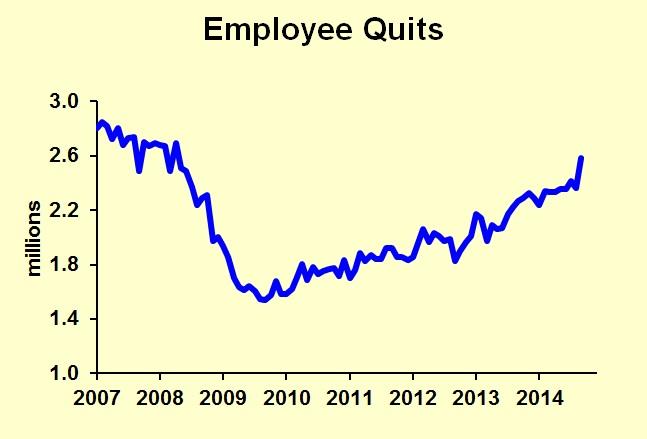The number of employees quitting their jobs is the highest it has been since early 2008, when the recession was just getting started. The number of vacant jobs is the highest it has been since 2001. The unemployment rate continues to fall. Only one thing has not changed: wage inflation. Is it time for companies to raise wage rates?
A year ago I noted the upswing in quits and wrote about the 7 Employee Retention Strategies Your Company Must Have. That article talked about ways to keep good employees that did not involve higher wages. Before considering higher pay, every manager should review those retention strategies. If you are missing several of them, then work on the non-cash aspects of management first.
However, it may be time to raise wage rates. I met a very successful plant manager who wants entry workers to be reliable, pass a drug test, do basic math, communicate clearly and get along with co-workers. For minimum wage. She is frustrated by not finding enough good job applicants. Okay, maybe it’s time to offer higher pay.

Some companies post job openings at low salaries, then ask current employees to cover for the open positions. This is fine short-term, but if it lasts too long, the company will burn out its best workers. When they bail out, the vacancy problem just gets worse.
Wage rates have risen by 2.2 percent over the past 12 months, not much different from last year, or even from 2010. Between increased productivity and higher product prices, the average company can cover the cost of somewhat higher wages. That’s not really the point, however. Companies should not pay higher wages simply because they can. They should pay higher wages when they need to recruit and retain vital workers. That seems to be the case in many companies. Business leaders should evaluate their own labor needs and consider wage hikes.













Leave A Comment